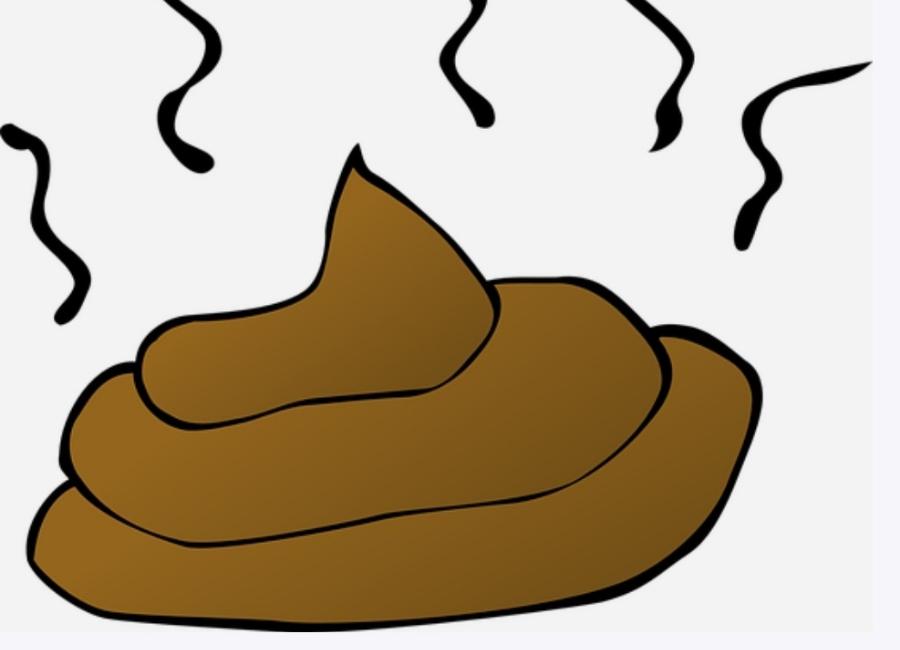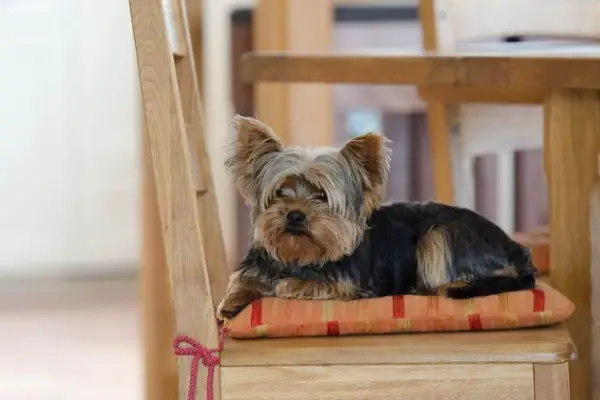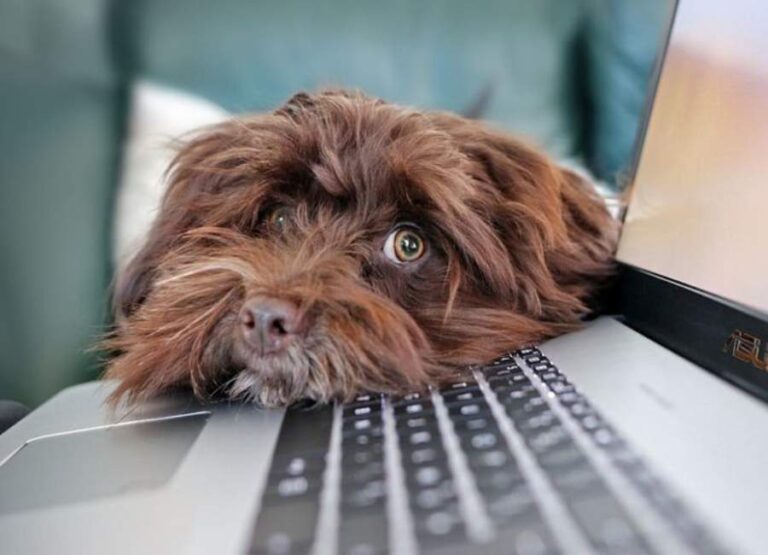11 Potential Reasons Your Dog Poop Looks Like Mucus

Have you ever found yourself wondering if your dog’s poop looks a little off? Maybe even like mucus?
Don’t worry, it’s not as uncommon as you may think. In fact, there are a few reasons why your furry friend’s stool may look this way.
Let’s dive into the topic of dog poop and mucus and explore what it could mean for your pup’s health.
Reasons Your Dog Poop Looks Like Mucus
Here are some potential reasons why your dog poop looks like mucus:
1. Colitis
The disorder known as colitis causes the colon to swell, which results in mucus in the feces.
Additionally, colitis can cause diarrhea, pain in the abdomen, and difficulty urinating.
Infections, parasites, or inflammatory diseases can all lead to colitis.
Antibiotics, anti-inflammatory drugs, and dietary modifications may all be used as treatments.
2. Intestinal Parasites
Mucus in the stool can be brought on by parasites such as hookworms, tapeworms, and roundworms.
These parasites are typically spread by infected prey, contaminated soil, or excrement.
Other symptoms may include vomiting, diarrhea, weight loss, and fatigue in addition to mucus in the stool.
To avoid these parasites, it’s critical to regularly deworm your dog and maintain proper cleanliness.
Learn more about how long it takes for worms to leave a dog after deworming.
3. Inflammatory Bowel Disease (IBD)
In IBD, the intestinal lining is attacked by the immune system, which results in inflammation.
Mucus may show up in the stool as a result of this inflammation, along with accompanying symptoms like nausea, vomiting, and stomach pain.
Imaging, blood testing, and physical examinations can all be used to diagnose IBD.
Dietary adjustments, medication, and sometimes surgery are all possible forms of treatment.
4. Food Allergies or Sensitivities
Some dog food or ingredient types may cause allergies or sensitivity in some canines.
This may result in intestinal irritation and mucous in the stool. Beef, chicken, dairy, and wheat are typical food allergies.
Elimination diets and allergy testing can help to pinpoint the allergen, and medication and dietary changes may be necessary for therapy.
Learn more about different ways dogs can get worms.
5. Antibiotic Use
Antibiotics may upset the intestinal bacterial equilibrium, resulting in mucus in the stool.
This is so that harmful bacteria won’t get out of control because antibiotics have the ability to eradicate both healthy and harmful bacteria.
Probiotics and dietary modifications may be used as part of the treatment to assist the gut’s balance return.
6. Anal Gland Issues
Dogs employ a pungent liquid that is produced by the anal glands, which are situated on either side of the canine anus, to mark their territory.
Sometimes these glands might develop an infection or an obstruction, which results in mucus showing up in the stool.
Other signs include scooting or licking the affected area. If the condition is chronic, treatment options include surgery, antibiotics, or manual expression of the glands.
7. Changes in Diet
It can be challenging for your dog’s digestive system to break down fatty foods or dairy products if your dog consumes a lot of them.
This can result in changes in their bowel habits, such as diarrhea or loose stools, which might make their poop mucusy.
Similarly to this, feeding your dog human food may upset their stomach and cause mucus to be produced in their feces.
Learn more about the two ways dogs can get heartworm.
8. Viral or Bacterial Infections
Salmonella and parvovirus are two viruses or bacteria that can create mucus in the feces.
The parvovirus is extremely contagious and potentially fatal.
These illnesses can be severe, so a veterinarian should be consulted right away.
Antibiotics may be used to treat the infection as well as medications to treat symptoms like nausea and diarrhea.
9. Stress
Like humans, dogs can experience the effects of stress. It may alter the digestive tract and result in mucus in the stool.
Changes in routine, unfamiliar surroundings or other sources of anxiety can all contribute to stress.
Environmental management, medicine, and behavior modification may all be used in treatment.
Learn more about the reasons why your dog poops liquid blood.
10. Irritable bowel syndrome (IBS)
Diarrhea, constipation, abdominal pain, and mucus in the stool are symptoms of IBS, which is a disorder where the digestive tract becomes hypersensitive.
Numerous variables, such as heredity, stress, or environmental conditions, can contribute to the development of this illness.
To control symptoms and enhance digestive health, the treatment plan may include dietary adjustments, medication, or other interventions.
11. Pancreatic insufficiency
This disorder causes diarrhea, mucus in the stool, and weight loss because the pancreas is unable to create enough enzymes to adequately digest food.
Numerous things, such as heredity, aging, or other medical disorders, can contribute to the development of this illness.
Enzyme replacement therapy or other therapies may be used as a form of treatment to control pancreatic insufficiency and enhance digestive function.
Diagnosing Why a Dog Has Mucus in Their Poop
If your dog frequently has mucus in their poop, it’s important to take them to a veterinarian for an exam and diagnosis.
The veterinarian will likely start by examining the dog’s stools and asking about other symptoms the dog may be experiencing.
They may also run tests, such as a fecal exam, bloodwork, or imaging studies, to determine if there is an underlying condition causing the mucus.
A vet is the best qualified to diagnose your dog and recommend the appropriate course of treatment based on the underlying cause
Treatment of Mucus in Dog Poop
The treatment of mucus in dog poop depends on the underlying cause.
It is important to visit a veterinarian to determine the cause of the mucus and receive the appropriate treatment.
Depending on the cause, treatment options may include medication to treat infections, changes in diet, probiotics, or anti-inflammatory medications.
In some cases, dietary changes may also be recommended.
Additionally, it is important to ensure that your dog stays hydrated to prevent dehydration, especially if diarrhea is present.
It’s recommended to not attempt any treatment without consulting a veterinarian first.
Tips for Managing Dog Poop That Looks Like Mucus
Here are some general tips for managing dog feces issues:
- Regularly Clean Up Your Dog’s Poop: Leaving dog poop in your yard, on your walks or trails, and in other areas can lead to a buildup of bacteria and other harmful organisms.
- Determine the Cause of the Mucus: If you notice mucus in your dog’s poop or diarrhea, it could be a sign of a gastrointestinal problem or other underlying health issues.
- Monitor Your Dog’s Diet: Your dog’s diet can have a significant impact on the consistency and quality of their poop. Certain foods, such as those high in fat or protein, can cause diarrhea, while others may lead to constipation or irregular bowel movements.
- Provide Plenty of Water: Maintaining proper hydration is important for your dog’s overall health and is essential for normal bowel function.
- Keep Your Dog Up-to-Date on Vaccinations: Some illnesses, such as parvo or distemper, can cause severe diarrhea, which may include mucus.
- Practice Good Hand Hygiene: Always wash your hands thoroughly after picking up and disposing of dog poop, and avoid touching your face or mouth while handling poop or cleaning up your dog’s area.
- Consider Probiotics: Probiotics are beneficial bacteria that can help regulate your dog’s digestion and may reduce inflammation in the gut.
- Visit Your Vet: If you notice any concerning changes in your dog’s poop, such as mucus or blood, or if your dog is experiencing other digestive issues, it’s essential to visit your veterinarian for a full examination.
- Dispose of Dog Poop Properly: Always pick up dog poop and dispose of it in the appropriate manner. You can use biodegradable bags or composting to reduce the environmental impact of dog poop.
Common questions
Why does my dog’s poop look like mucus?
There can be several reasons. It could be a sign of a dietary issue, a bacterial infection, or inflammation in the digestive tract.
It’s best to consult your veterinarian to determine the exact cause and treatment.
Is it normal for a dog’s poop to have mucus in it?
Small amounts of mucus on dog poop can be normal, but if there is a large amount or it’s a persistent issue, it could indicate an underlying health issue.
How can I prevent my dog’s poop from having mucus in it?
Maintaining a healthy and balanced diet for your dog is crucial.
Make sure to avoid feeding your dog table scraps or anything that can upset their stomach.
If you notice persistent issues, consult your veterinarian.
Can stress cause a dog’s poop to have mucus in it?
Yes, stress can cause digestive issues in dogs, including mucus in their poop.
If you think stress could be the cause, consult your veterinarian on ways to alleviate the stress.
How can I tell if my dog is suffering from digestive issues?
Some signs include diarrhea, vomiting, lethargy, loss of appetite, or any changes in the color, texture, and frequency of their poop.
If you notice any persistent issues, consult your veterinarian.
Can I treat my dog’s poop with over-the-counter medication?
It’s not recommended to administer any medication without consulting your veterinarian first.
The underlying cause needs to be diagnosed before appropriate treatment can be prescribed.
Conclusion
In conclusion, dealing with dog poop that looks like mucus can be a real hassle for any dog owner.
It could be a sign of a health issue or simply a result of their diet.
Regardless, it’s important to stay vigilant and keep an eye on your furry friend’s bowel movements.
Remember to always clean up after your pup, and if you ever have concerns about their health, don’t hesitate to consult a veterinarian.

![Trauma in Dogs [Signs, Causes & Solutions] Trauma in Dogs](https://petcreeks.com/wp-content/uploads/2023/12/pexels-mikhail-nilov-7469228.jpg)
![How to Know if Your Dog is Deaf [12 Signs & Tips] How to Know if Your Dog is Deaf](https://petcreeks.com/wp-content/uploads/2023/09/medicine-5003631_640-1.jpg)

![How Dogs Get Heartworm [2 Possible Ways] How dogs get heartworm](https://petcreeks.com/wp-content/uploads/2021/07/how-do-dogs-get-heartworm-768x644.jpg)

